learning resources
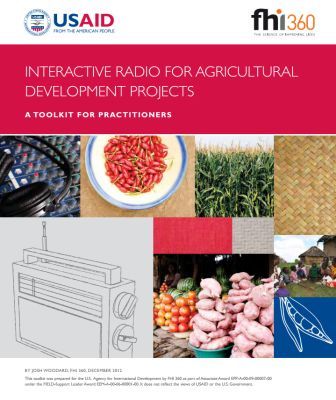
It aims to provide practitioners with a foundational understanding of what is needed to create compelling radio programming.Given the fact that radio continues to be the most readily accessible communication tool in much of sub-Saharan Africa, this toolkit aims to enable practitioners to develop a more systematic approach to using interactive radio as one medium through which they share information with farmers.

Participative marketing is based on a strong web of relationships to help bring people together for a common purpose. It extends the idea of "relationship marketing" to cover all types of communications and social networks.
The sourcebook provides ideas, principles and possibilities for radio station marketing, radio branding and community radio funding and advertising. It includes suggestions on how a community radio can secure an audience, generate income and become sustainable.
Also available in Bahasa Indonesia
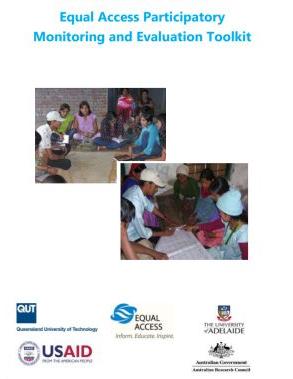
The toolkit comprises 6 modules:
1: Effective communication, feedback and reporting systems in a PM&E process
2: Setting objectives and indicators
3: Research and PM&E methods
4: Critical Listening and Feedback Sessions
5: Doing qualitative data analysis
The toolkit includes a manual on the Most Significant Change technique.
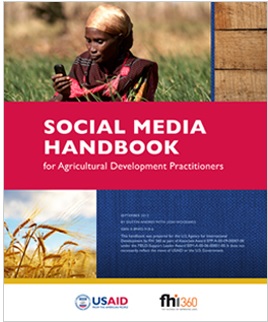 [2013] The Social Media Handbook for Agricultural Development Practitioners is designed to help USAID projects and other implementing organizations use social media to complement their existing and future agricultural communications efforts. In addition, it aims to provide practitioners with a foundational understanding of what is needed to create compelling social media content.
[2013] The Social Media Handbook for Agricultural Development Practitioners is designed to help USAID projects and other implementing organizations use social media to complement their existing and future agricultural communications efforts. In addition, it aims to provide practitioners with a foundational understanding of what is needed to create compelling social media content.
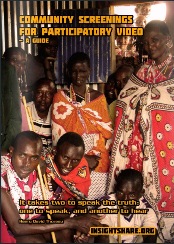 [2012] The guide produced by InsightShare provides ideas and inspiration for anyone organizing community screenings as part of a participatory video process. It includes advice on planning and delivering an effective screening, practical suggestions for logistic and technical considerations.
[2012] The guide produced by InsightShare provides ideas and inspiration for anyone organizing community screenings as part of a participatory video process. It includes advice on planning and delivering an effective screening, practical suggestions for logistic and technical considerations.
The guide also offers facilitators tips and a series of case studies based on previous projects in Uganda, Myanmar, India, Kenya, DRC and UK.
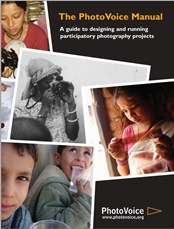
[2013] The manual is intended to give an introduction to the power of participatory photography as a tool for social change for marginalized groups. Readers will learn about the considerable benefits that participatory photographic projects can bring to participants.
The manual is based on past projects developed by PhotoVoice across four continents over the last eight years and offers tips and suggestions regarding the structure of the workshops as well as the promotion of the work produced.
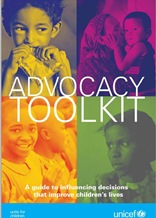 [2010] Stemming from its exceptional history of advocating to protect and promote children’s and women’s rights, UNICEF developed this toolkit to provide staff and partners with practical tools to develop and manage their advocacy work.
[2010] Stemming from its exceptional history of advocating to protect and promote children’s and women’s rights, UNICEF developed this toolkit to provide staff and partners with practical tools to develop and manage their advocacy work.
The heart of the Toolkit provides detailed steps, guidance and tools for developing and implementing an advocacy strategy. The Toolkit also outlines areas that can help strengthen an office’s capacity for advocacy, and covers several crosscutting aspects of advocacy including monitoring and evaluating advocacy, managing knowledge in advocacy, managing risks in advocacy, building relationships and securing partnerships for advocacy, and working with children and young people in advocacy.




